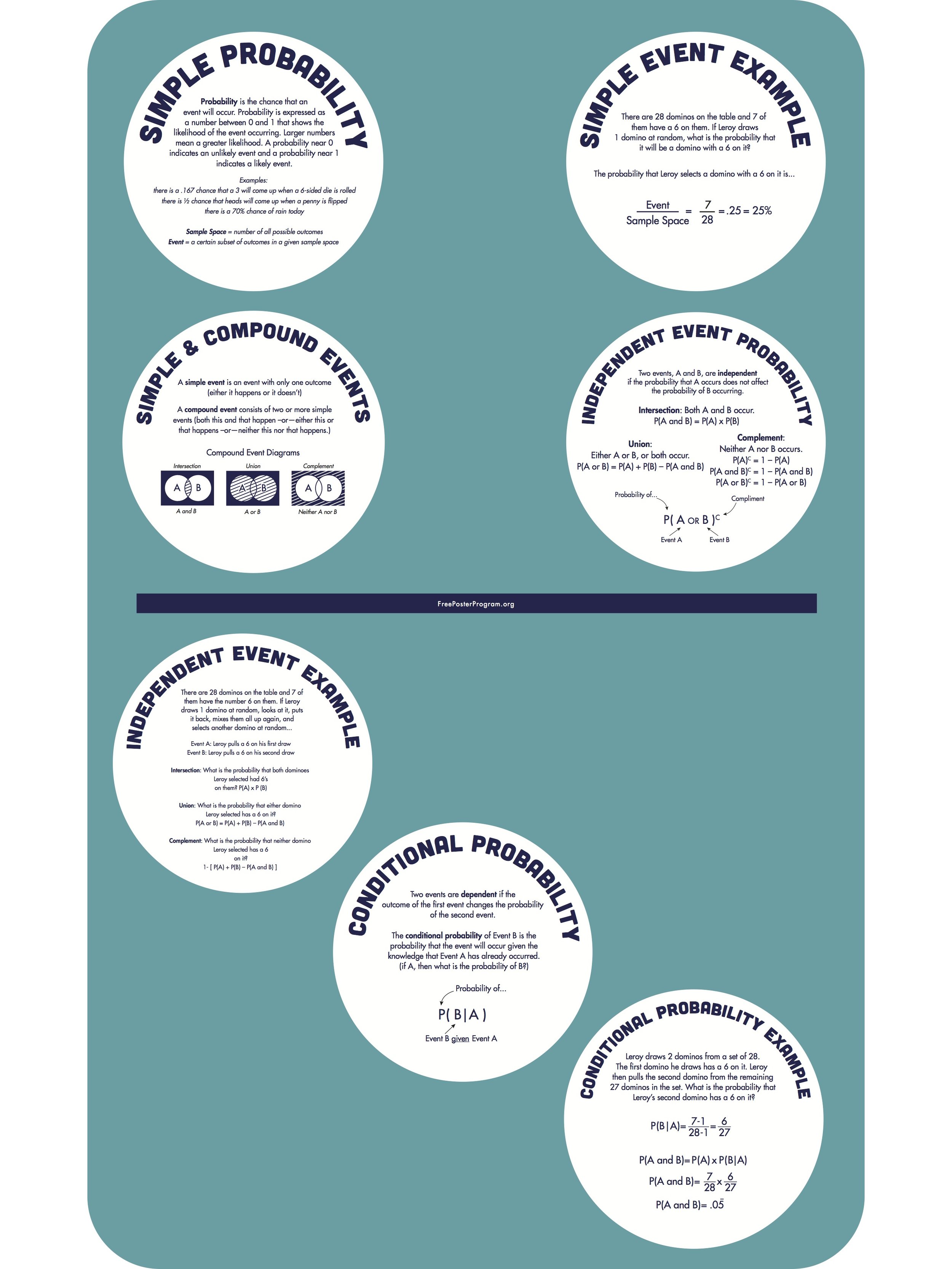P(Domino)
Cabdrivers in Santiago de Cuba play while waiting for fares outside of Spanish-owned resorts. Losers in Cite Soleil, Haiti are adorned with the slow pain of clothespins clipped all over their bodies by laughing victors. In New York City, their brethren play on different corners of the same uptown block. And in the parks and prisons of California, the slaps and shouts of enthusiastic play ring through the day and night. Across nationality, language, generation, gender, ethnicity, and creed, people find what they’re looking for on the dominos table. Dominos are an international phenomenon and there seem to be as many different versions of the game as there are people who play.
But no matter what variation of the game is being played, mathematical probability is an essential part of any serious player’s game: it is crucial to know what dominos have already been played, what you’re holding, and the chances that your opponents can play a domino that scores or locks out the game. Indeed, the power of probability is not only on display on the bones table, it is also critical to understanding all sorts of phenomena in the world around us.
The Sentencing Project statistics suggest that 1 in 32 people in the United States will go to prison, but almost 3 in 10 black men will. For white women, the numbers are about 1 in 111. That means that if conditions remained the same and tomorrow you were randomly born as a black male in the U. S. of A, you would be 37 times more likely to go to prison than if you had been randomly born as a white female. Rugged. This is an area of the math where we have to be careful, though— the powers of probability can mislead us just as they can guide us to better understanding. If we are not vigilant, statistics like those about race and incarceration can begin to seem deterministic—as if they mean that black men will certainly get locked up and white women certainly won’t. Even the statement, ‘3 out of 10 black men will go to prison’ is only true if incarceration rates stay the same in the future. Thankfully, there are dedicated individuals and groups such as the AFSC Healing Justice Program, The Sentencing Project, and All of Us or None that are working tirelessly to change those incarceration rates, so that the probability of going to prison for a random black male baby born tomorrow hopefully will not be 3 out of 10. Moreover, the probability that any one individual will go to jail is influenced by many factors other than race and gender—such as socio-economic status and geographic location—so no individual black male actually has exactly a .3 chance of going to prison. Indeed, when faced with numbers as bad as these, it is important that we don’t let probability figures lead us to believe that anything is for sure. Instead, we can use probability to ask better questions and identify more subtle problems as we work together to change those probabilities and the harsh realities they represent.
Another particularly brain-twisting application of probability is the Fermi Paradox, which raises the question of why humans have not been able to make contact with intelligent extraterrestrial life, even though the probability that such life exists is as close to 1 as we can come (i.e. mathematically certain). There are plenty of astrobiologists (folks who study life in the universe) and mathematicians who can make your head spin with the intricacies of this question, but here is one crude formulation: if, from the best we can tell, there are infinite planets in our universe, then the probability that at least one planet other than Earth has intelligent life is very high—essentially a certainty. Certainty seems a funny thing to claim when we’re talking about galaxies that no human has ever seen evidence of, but that’s where the math leads us. The power of probability!
And so, whether we are examining incarceration rates, searching for extraterrestrial life, playing dominos, or doing just about anything else, mathematical probability is playing its part. In recognition of the cultural significance of dominos and the power of probability, The Free Poster Program is proud to present the P(Domino) poster for your enjoyment and future reference.

